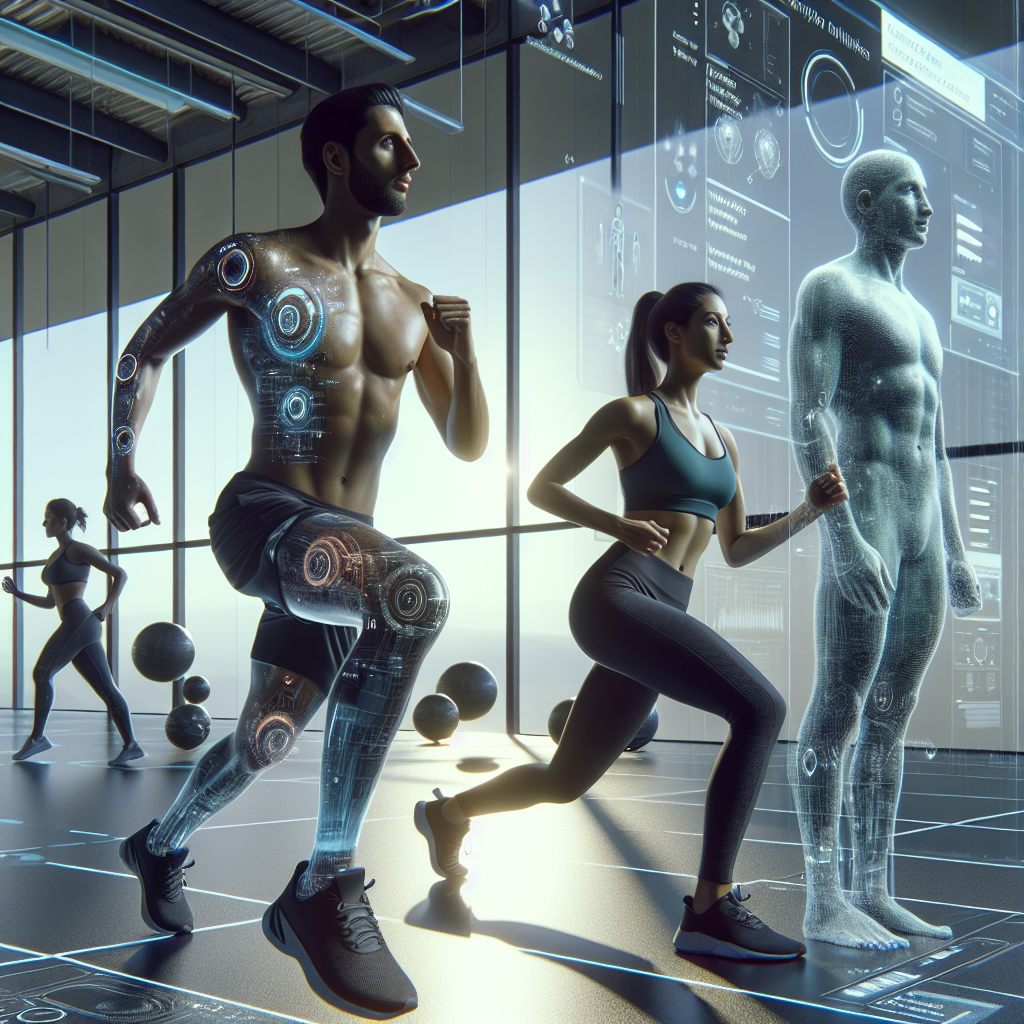Fitness tracking, enhanced with Artificial Intelligence (AI), revolutionizes how individuals monitor and optimize their health and wellness routines. By integrating AI technology, fitness trackers can offer personalized insights, predictive analytics, and adaptive feedback, elevating the user experience and effectiveness of health monitoring. This transformation is powered by advanced algorithms that analyze data in real-time to provide users with actionable insights and recommendations tailored to their unique fitness journeys.
The Evolution of Fitness Tracking Technology
The journey of fitness tracking technology has been marked by significant milestones, each contributing to the evolution of health monitoring tools. Early pedometers have evolved into sophisticated devices capable of tracking various health metrics, including heart rate, sleep patterns, and calorie intake. The incorporation of AI has propelled these devices into the realm of intelligent health assistants.
From Basic to Advanced: A Historical Perspective
Initially, fitness trackers were limited to counting steps. However, with rapid technological advancements, they now include features such as GPS tracking, heart rate monitoring, and even electrocardiograms (ECG). These features have been enhanced further with AI, which can interpret complex data sets to provide users with comprehensive health insights.
The Role of Wearable Technology
Wearable technology plays a crucial role in the fitness industry. Devices such as smartwatches and fitness bands have become ubiquitous, offering users the ability to track their health metrics 24/7. The integration of AI into these devices has transformed them from passive data collectors to active health advisors.
How AI Enhances Fitness Tracking
AI enhances fitness tracking by enabling devices to analyze large sets of data and learn from user behavior to provide personalized feedback. Here are several ways AI is transforming fitness tracking:
Personalized Fitness Insights
AI algorithms analyze user data to provide personalized insights that are specific to an individual’s fitness goals. For instance, if a user’s goal is to lose weight, the AI can offer tailored workout routines and dietary suggestions based on their activity levels and dietary habits.
Predictive Analytics for Proactive Health Management
Predictive analytics in AI can forecast potential health issues by analyzing patterns and trends in user data. For example, if a user’s data indicates irregular sleep patterns, the AI can suggest lifestyle changes or alert the user to seek medical advice.
Adaptive Feedback and Real-time Adjustments
AI-powered fitness trackers can adjust recommendations in real-time, adapting to changes in a user’s performance or health status. This feature ensures that users receive the most relevant and effective guidance to achieve their fitness goals.
Real-World Application: AI in Action
| Feature | Benefit | Example |
|---|---|---|
| Heart Rate Monitoring | Continuous tracking and immediate alerts for anomalies | Apple Watch’s ECG feature |
| Sleep Tracking | Improved sleep quality through tailored feedback | Fitbit’s Sleep Score |
| Workout Recommendations | Personalized exercises based on fitness level | Garmin’s Adaptive Training Plans |
AI-driven Features in Fitness Trackers
The integration of AI into fitness trackers has led to the development of several innovative features:
Emotion Recognition through Biometric Data
Advanced AI algorithms can interpret biometric data to recognize emotional states, providing insights into how stress or mood may be affecting physical health and fitness performance.
Voice Assistants and AI Coaching
Voice-activated AI assistants offer hands-free interaction, providing users with workout guidance, health tips, and motivational prompts. This feature enhances user engagement and adherence to fitness routines.
Integration with IoT for a Holistic Health Approach
The Internet of Things (IoT) enables seamless integration between fitness trackers and smart home devices, creating a holistic approach to health management. For example, smart scales, thermometers, and blood pressure monitors can sync with fitness apps to provide a comprehensive health overview.
Challenges and Limitations of AI in Fitness Tracking
While AI offers numerous benefits, it also presents challenges that need to be addressed:
Data Privacy and Security Concerns
As fitness trackers collect sensitive health data, ensuring data privacy and security is paramount. Users need assurance that their information is handled responsibly and protected against breaches.
Algorithm Bias and Accuracy
AI algorithms can be subject to bias, which may affect the accuracy of the insights provided. Ensuring diverse data sets are used for training AI models is crucial to minimize bias and improve reliability.
Interoperability Issues
The lack of standardization across devices can lead to interoperability issues, making it difficult for users to integrate data from different sources into a single platform.
Future Trends in AI-powered Fitness Tracking
The future of AI in fitness tracking promises exciting developments that will further enhance user experiences:
Enhanced Personalization through Machine Learning
Machine learning will continue to refine the personalization of fitness tracking, offering even more nuanced insights and recommendations tailored to individual needs and preferences.
Advancements in Sensor Technology
Future fitness devices are expected to incorporate advanced sensors capable of measuring a wider range of health metrics, such as hydration levels and blood glucose, providing users with a more comprehensive understanding of their health.
Integration of Virtual and Augmented Reality
Virtual and augmented reality technologies have the potential to transform fitness experiences, offering immersive workouts and interactive fitness environments that engage and motivate users.
Conclusion
AI technology is revolutionizing fitness tracking by offering personalized, predictive, and adaptive insights that empower users to take control of their health. As technology continues to advance, AI-powered fitness trackers will become even more sophisticated, providing users with comprehensive health monitoring solutions that enhance their fitness journeys. However, addressing challenges such as data privacy, algorithm bias, and interoperability will be crucial to maximizing the benefits of AI in this domain.
Take Control of Your Fitness Journey Today!
Experience the Future of Fitness with PurelyFit’s AI-Powered Workouts and Nutrition Plans.
Transform your routine with workouts tailored just for you, access over 600,000 recipes that fit your lifestyle, and enjoy real-time progress tracking. Say goodbye to expensive trainers and confusing diets. Let AI be your ultimate guide to achieving your fitness goals faster and smarter.
Start your revolutionary fitness journey now with PurelyFit!












